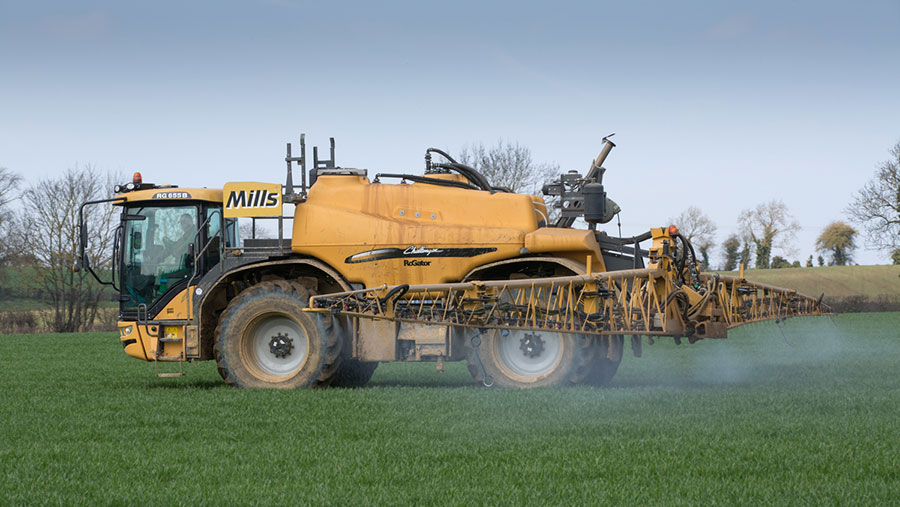Protect beneficial insects to control wheat pests, study says
 © Tim Scrivener
© Tim Scrivener Farmers are being urged to consider ways of promoting beneficial insects, as research suggests pesticides are having a greater impact than previously thought.
A study by the Game and Wildlife Conservation Trust (GWCT), with support from Natural England, looked at more than 40 years of data collected on farmland on the Sussex Downs.
See also: High pyrethroid resistance found in cabbage stem flea beetle
It examined the effect of climate and pesticide use over that time on the abundance of insects and spiders in cereal crops.
Of the 26 most commonly identified invertebrate groups, 11 were found to be sensitive to extreme weather such as hot-dry summers or cold-wet winters, predicted to be more common with climate change.
Julie Ewald, who runs the Sussex Study at the GWCT, pointed out that it was not necessarily just the long-term impact of rising temperatures that was likely to be a result of climate change.
“Extreme events such as droughts and wet spring/summers like that seen in 2012 could have a big impact on numbers of invertebrates.
“We did find this was the case but that, in cereal crops, insects and spiders recover quickly from these events, if conditions are right.”
Having a bigger effect on some invertebrate numbers in cereal crops than climate was the use of pesticides, particularly for predator groups such as beetles and spiders.
“And these farmers were not farming land that intensively, they all had Higher Level Stewardship agreements and were following best practice.”
She acknowledged that farmers are not looking to take out all insects when controlling pests, but the unintended consequence is that it also reduces the number of beneficial insects.
Some of these insects are actually predators for the pests, she says.
Pest management approach
Therefore, farmers could gain from deploying measures to promote beneficials, such as conservation areas for beetles, as part of an integrated pest management (IPM) approach.
“Avoiding the edges of fields and headlands when spraying could also help.”
One concern is the increased use of foliar insecticide sprays on oilseed rape to control flea beetles, because of the loss of neonicotinoid seed treatments.
While the study did not look at oilseed rape crops, she said “we do know there is a carryover effect with foliar sprays.”
“In areas where populations of invertebrates have been reduced through the use of insecticides, you still see lower numbers in the next season.”
Commenting on the trial, NFU plant health adviser Emma Hamer highlights that many farmers are already adopting an integrated approach to plant protection.
“Rotation, resistant varieties, cultivation techniques and the use of natural predators would be just some of the principles that are being embraced,” she says.
She also points out that 70% of English agricultural land is covered by an environmental stewardship agreement.
“Buffer zones, beetle banks, 6m field margins, pollen and nectar mixes, wild bird seed strips and hedgerow management are just some of the steps farmers have been taking to enhance the biodiversity on their land.”

